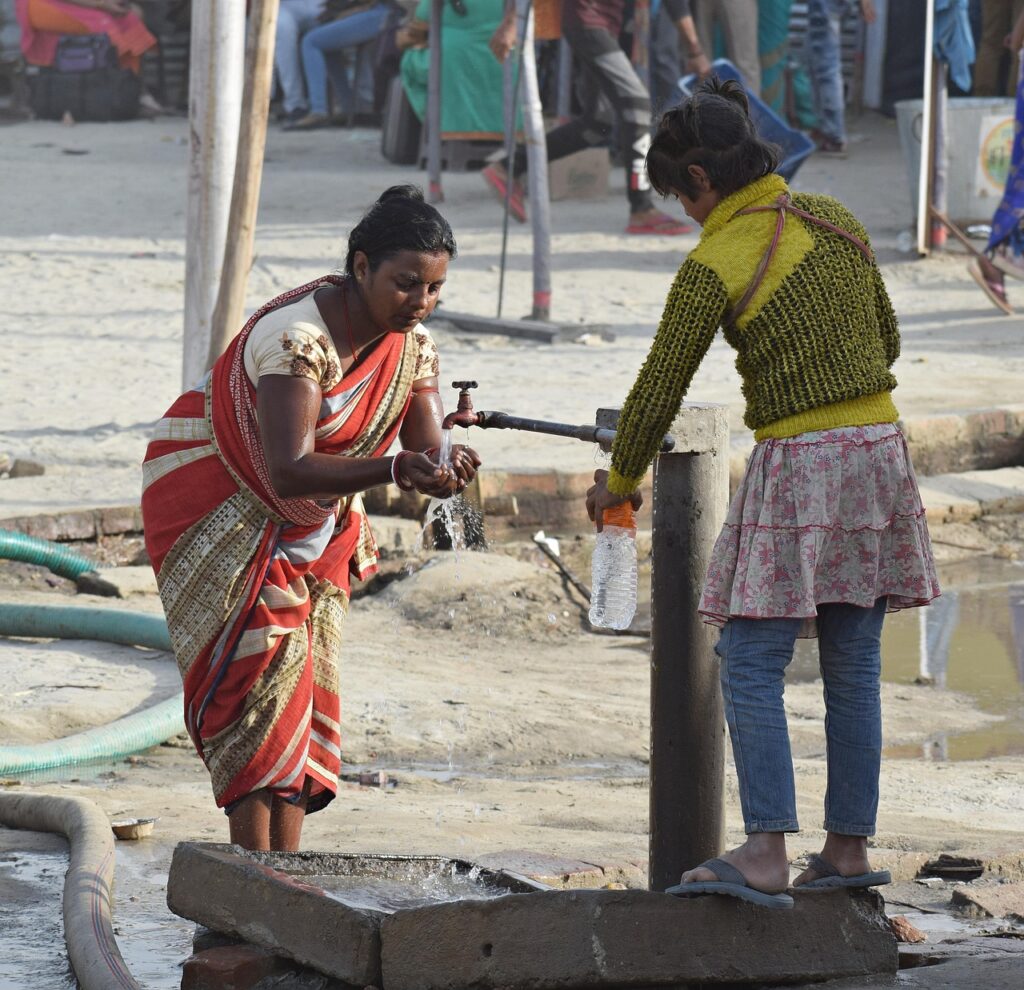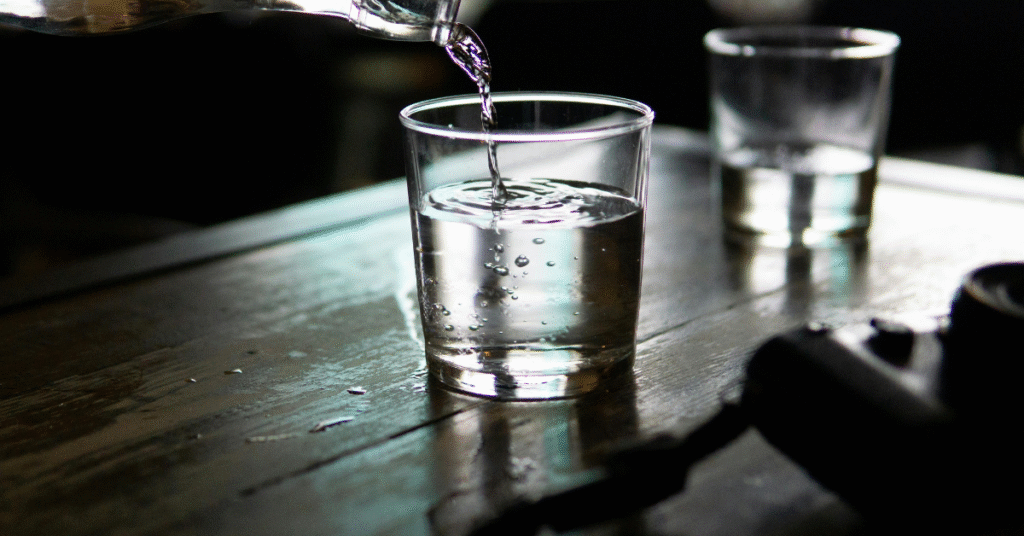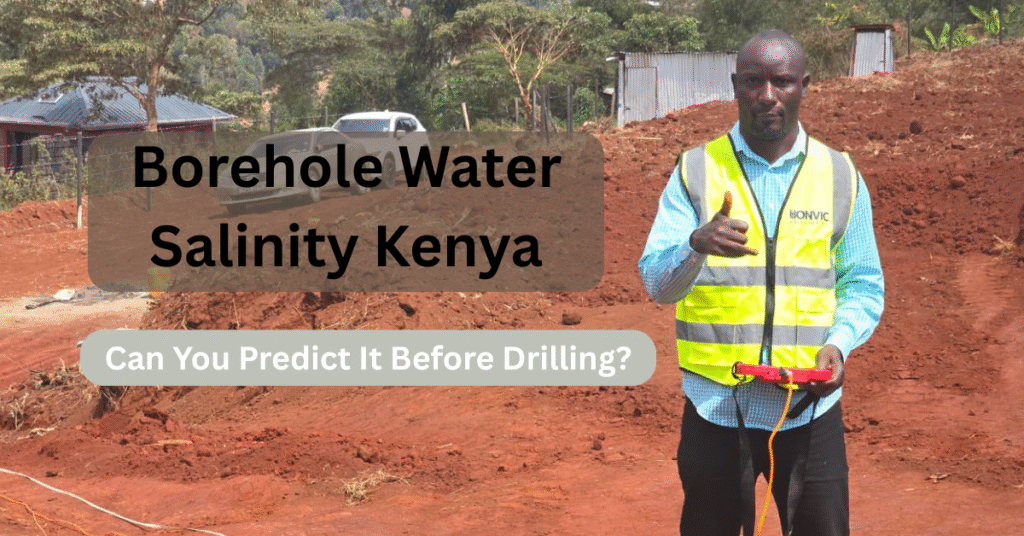Imagine being super thirsty on a hot day and not being near a store or a tap.
Then you see a borehole, a kind of deep well drilled into the ground, bringing water up from underground. This water is called borehole water, and it’s very important in places without big water systems.
But here’s the big question: can you fill up your water bottle and drink it?
Let’s dive in and find out if borehole water is safe to drink!
What is Borehole Water?

Borehole water comes from underground aquifers, like huge natural water storage spaces hidden deep below the earth.
To obtain this water, people dig deep into the ground and bring it to the surface using pipes.
In many places worldwide, borehole water is the main source of drinking water. It can feel like a magical way to get water!
But just because it’s deep underground doesn’t automatically mean it’s clean and safe.
Also read The Science Behind Borehole Test Pumping
Why Isn’t All Borehole Water Safe?
You might think, “If borehole water comes from way underground, isn’t it clean?”
Good question!
While it’s true that soil and rocks can filter out some dirt and germs, borehole water can still get contaminated.
Contaminants are things that don’t belong in water and could make us sick if we drink them.
Here are some common contaminants:
Germs:
Tiny living things like bacteria, viruses, and protozoa can sometimes end up in borehole water. Imagine if a farm is nearby, and there’s animal waste (poop) on the ground.
Rainwater might carry it down to the borehole, bringing along germs.
Chemicals:
Chemicals might seep into the groundwater if a factory is nearby or many fertilizers are used on farms.
For example, rainwater could carry bits of oil into a borehole if someone spills oil on the ground.
Natural Minerals:
Sometimes, underground rocks release minerals like iron or fluoride into the water.
While small amounts of minerals can be okay, too much can make the water taste strange or harm our health.
Let’s think about a town called “Waterville.” Many people use borehole water in Waterville, but a big farm is nearby.
One day, Sammy, a curious 10-year-old, learns that the fertilizer from the farm can get into the borehole water.
So, he decides to find out what can be done to keep the water clean and safe.
Also read Why Gravel Matters in Borehole Drilling
How Do We Know if Borehole Water is Safe?

To ensure borehole water is safe, it’s important to test it regularly.
Testing borehole water is like a health check-up for the water!
Experts test for things like germs, chemicals, and minerals.
Here’s how it works:
- Collecting Water Samples: A small water bottle is taken from the borehole.
- Testing for Germs: Scientists look for bacteria or viruses in the water that might make people sick.
- Testing for Chemicals: They check if there are any harmful chemicals like pesticides or heavy metals (such as lead).
- Testing for Minerals: They look for any too-high or too-low minerals.
In Waterville, Sammy’s family takes their borehole water to a local testing center.
After a few days, they find too many germs in the water, so it’s not safe to drink directly.
How Can We Make Borehole Water Safe to Drink?

If testing shows that borehole water isn’t safe, we can do a few things to make it drinkable. Here are some common methods:
- Filtration is like putting water through a special strainer to catch dirt and other tiny particles. Different types of filters, like carbon filters, can remove certain chemicals.
- Boiling: When water is boiled, high heat can kill harmful germs. This is a simple way to make water safer, but it won’t remove chemicals or minerals.
- Disinfection: UV lights and chlorination (adding a small amount of a chemical like chlorine) can kill germs in the water. For example, some families have small UV lights to treat borehole water.
Sammy’s family decides to boil their borehole water in Waterville before drinking it. They also buy a special water filter to remove any remaining particles.
Now, they’re much more confident that their water is safe to drink.
What’s Good About Borehole Water?
There are lots of great things about borehole water, especially in areas where people don’t have access to regular water systems. Here are some benefits:
- Always Available: Unlike lakes or rivers, borehole water doesn’t dry up easily, making it a steady water source during dry seasons.
- Independent Supply: Since boreholes don’t rely on large systems, families and communities can use them directly. This independence can be helpful when city water supplies are limited.
- Less Costly Over Time: Once a borehole is drilled, it can provide water for a long time without costing as much as city water bills.
In Waterville, many families are glad to have boreholes because they don’t need to worry about water running out.
Sammy learns that borehole water can be a great resource with proper care and regular testing.
Also read How Long Does a Water Borehole Last?
What Should You Be Careful About with Borehole Water?

While borehole water can be very helpful, there are a few things to keep in mind:
- Regular Testing: Just like you might go to the doctor for a check-up, borehole water needs to be tested regularly to catch any changes in its quality.
- Watch for Nearby Pollution: It’s best if boreholes aren’t located too close to farms, factories, or garbage dumps where chemicals or germs could enter the water.
- Keep the Area Clean: It’s important to keep the area around the borehole clean and free from anything that could contaminate it.
One day, Sammy notices that some neighbours leave trash near the borehole in Waterville.
He explains that trash can make the water dirty and could lead to problems for everyone.
His neighbours start cleaning up, and Sammy feels proud to help protect the water source.
Who Makes the Rules for Borehole Water Safety?
There are organizations, like the World Health Organization (WHO), that set guidelines for safe drinking water. These guidelines help countries and local communities know what to look for and how to keep water clean.
In many places, local water agencies also ensure that borehole water meets health standards. They conduct regular inspections and help people understand what needs to be done to keep their water safe.
In Waterville, Sammy’s family learns that the water agency recommends testing borehole water twice yearly. They mark it on their calendar so they don’t forget.
Conclusion
Borehole water can be safe to drink, but it’s important to ensure it’s clean and healthy. Families can confidently use this resource by testing, filtering, and disinfecting borehole water.
Remember, whether you’re drinking borehole water or tap water, keeping it clean and safe takes teamwork and effort.
So, next time you see a borehole, you’ll know more about making that water safe and refreshing!
What do you think—would you try borehole water if you knew it was clean?
You can find us on Facebook, YouTube, and TikTok for more insights and success stories.
Also read Is Borehole Water Good for Irrigation?



Thank you Bonvic Drilling Company for this big effort and the education at 🖐, now I know about bored na it’s maintenance. Thank you
Pingback: Borehole Equipping
Pingback: Borehole Collapse? Here's How to Fix It Effectively